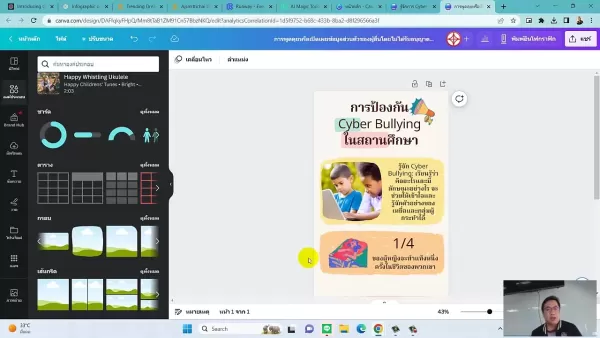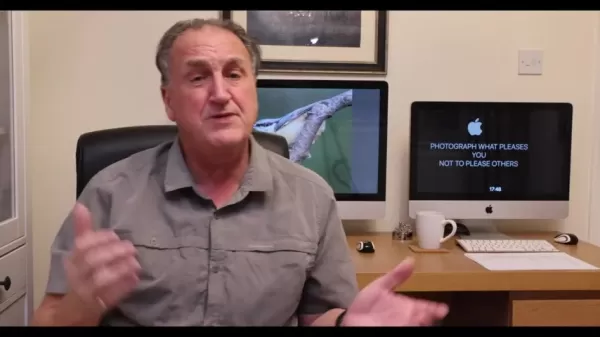Why Mark Zuckerberg wants to redefine open source so badly

LONDON -- Integrating artificial intelligence into the world of open source is no simple task. While it's true that AI has deep roots in open source, with notable examples like IBM's Granite Large Language Models (LLM) and RHEL AI fully embracing open-source principles, the reality is that many high-profile AI models, like Meta's Llama, fall short of being truly open source. Despite Meta CEO Mark Zuckerberg's assertions to the contrary, a panel of open-source experts at the State of Open 2025 conference debunked this claim.
There's now an official definition for open-source AI, but the debate rages on.
Emily Omier, a respected consultant for open-source start-ups, stressed that open source is not a sliding scale but a clear-cut standard defined by the Open Source Initiative (OSI). "You're either open source, or you're not. If you have an OSI-approved license, you're open source. Without it, you're dealing with a different kind of license altogether," she explained.
Meta's Llama doesn't meet this standard because it withholds essential elements like training data and methodology, and it restricts transparency and community contributions.
Moreover, Llama imposes licensing restrictions on its users. For instance, if you create a highly successful AI program using Llama's code, you'll owe Meta royalties. That's not open source by any measure.
Stefano Maffulli, the executive director of the OSI, shared his thoughts with me: "We align with everything Zuckerberg has stated in theory. If only Meta would lift the restrictions on their license, we'd be on the same page. As it stands, Llama poses a risk to developers; it's too opaque to be safely used and comes with a license that keeps Meta in control of any innovations."
Maffulli went on to say that Zuckerberg was "pressuring the industry to follow his lead."
It's widely accepted that open source is the optimal approach for software development. Zuckerberg himself acknowledges this, stating, "We've thrived on the innovations from the open-source ecosystem by making leading tools like PyTorch, React, and many others freely available. This strategy has proven effective for us when we stick to it over time."
However, all those tools are released under OSI-approved licenses. When it comes to AI, Zuckerberg seems intent on redefining open source. Why? Peter Zaitsev, co-founder of Percona and numerous open-source startups, suggests that "Zuckerberg is muddying the term to mislead regulators."
This is crucial for Meta's plans in the European Union (EU), where the newly enacted EU AI Act offers an exemption for AI systems distributed under free and open-source licenses, potentially saving Meta billions.
Meta is therefore pushing to redefine "open source" in the context of AI, all while keeping critical components under wraps. According to Meta, "The current open-source definitions for software don't fully address the complexities of modern AI models. We're dedicated to collaborating with the industry to develop new definitions that ensure safety and responsibility within the AI community."
In essence, Meta wants to redefine open source in a way that benefits them exclusively.
Yet, this goes against the very essence of open source, regardless of Meta's arguments.
Related article
 Best AI Tools for Creating Educational Infographics – Design Tips & Techniques
In today's digitally-driven educational landscape, infographics have emerged as a transformative communication medium that converts complex information into visually appealing, easily understandable formats. AI technology is revolutionizing how educa
Best AI Tools for Creating Educational Infographics – Design Tips & Techniques
In today's digitally-driven educational landscape, infographics have emerged as a transformative communication medium that converts complex information into visually appealing, easily understandable formats. AI technology is revolutionizing how educa
 Topaz DeNoise AI: Best Noise Reduction Tool in 2025 – Full Guide
In the competitive world of digital photography, image clarity remains paramount. Photographers at all skill levels contend with digital noise that compromises otherwise excellent shots. Topaz DeNoise AI emerges as a cutting-edge solution, harnessing
Topaz DeNoise AI: Best Noise Reduction Tool in 2025 – Full Guide
In the competitive world of digital photography, image clarity remains paramount. Photographers at all skill levels contend with digital noise that compromises otherwise excellent shots. Topaz DeNoise AI emerges as a cutting-edge solution, harnessing
 Master Emerald Kaizo Nuzlocke: Ultimate Survival & Strategy Guide
Emerald Kaizo stands as one of the most formidable Pokémon ROM hacks ever conceived. While attempting a Nuzlocke run exponentially increases the challenge, victory remains achievable through meticulous planning and strategic execution. This definitiv
Comments (42)
0/200
Master Emerald Kaizo Nuzlocke: Ultimate Survival & Strategy Guide
Emerald Kaizo stands as one of the most formidable Pokémon ROM hacks ever conceived. While attempting a Nuzlocke run exponentially increases the challenge, victory remains achievable through meticulous planning and strategic execution. This definitiv
Comments (42)
0/200
![JoseJackson]() JoseJackson
JoseJackson
 August 19, 2025 at 7:01:06 AM EDT
August 19, 2025 at 7:01:06 AM EDT
Zuck's push to redefine open source feels like a tech soap opera! 🧼 Is he trying to control the narrative or just vibing with AI's open-source roots? Curious to see how this plays out.


 0
0
![WalterSanchez]() WalterSanchez
WalterSanchez
 July 29, 2025 at 8:25:16 AM EDT
July 29, 2025 at 8:25:16 AM EDT
Zuck's push to redefine open source feels like a tech soap opera! 🧼 Why so desperate to control the narrative? AI's open roots are cool, but this smells like a power grab. Thoughts?


 0
0
![LarryMartin]() LarryMartin
LarryMartin
 April 22, 2025 at 2:40:24 AM EDT
April 22, 2025 at 2:40:24 AM EDT
마크 저커버그의 오픈 소스와 AI에 대한 견해는 흥미롭지만, 조금 규칙을 구부리려는 느낌이 듭니다. 혁신의 필요성은 이해하지만, 오픈 소스를 재정의하다니요? 그것은 조금 과하네요. 그래도 IBM의 Granite과 RHEL AI의 예시를 보는 건 재미있어요. 어쩌면 그는 무언가를 잡고 있는 것일지도 모르지만, 저에게는 조금 너무 야심찬 것 같아요. 🤔


 0
0
![MateoAdams]() MateoAdams
MateoAdams
 April 22, 2025 at 2:00:19 AM EDT
April 22, 2025 at 2:00:19 AM EDT
마크 저커버그가 AI를 이용해 오픈 소스를 재정의하려는 시도는 흥미롭지만, 과연 필요한지 모르겠어요. 이미 IBM의 Granite LLM처럼 오픈 소스와 AI는 잘 어울리고 있어요. 그가 그냥 자기 스타일을 강요하려는 것 같아요. 🤔 다른 문제에 집중하는 게 나을까요?


 0
0
![CharlesJohnson]() CharlesJohnson
CharlesJohnson
 April 21, 2025 at 7:48:39 PM EDT
April 21, 2025 at 7:48:39 PM EDT
La perspectiva de Mark Zuckerberg sobre el open source y la IA es interesante, pero parece que está tratando de doblar un poco las reglas. Entiendo la necesidad de innovación, pero ¿redefinir el open source? Eso es un poco demasiado. Sin embargo, los ejemplos con el Granite de IBM y el RHEL AI son geniales de ver. Tal vez esté en algo, pero es un poco ambicioso para mí. 🤔


 0
0
![RichardThomas]() RichardThomas
RichardThomas
 April 21, 2025 at 7:31:42 PM EDT
April 21, 2025 at 7:31:42 PM EDT
A obsessão do Mark Zuckerberg em redefinir o open source é meio estranha, mas interessante. É legal ver como a IA está sendo integrada nisso, especialmente com exemplos como o Granite LLM da IBM. Mas não tenho certeza se isso vai mudar muito. Ainda assim, vale a pena ficar de olho! 🤔


 0
0

LONDON -- Integrating artificial intelligence into the world of open source is no simple task. While it's true that AI has deep roots in open source, with notable examples like IBM's Granite Large Language Models (LLM) and RHEL AI fully embracing open-source principles, the reality is that many high-profile AI models, like Meta's Llama, fall short of being truly open source. Despite Meta CEO Mark Zuckerberg's assertions to the contrary, a panel of open-source experts at the State of Open 2025 conference debunked this claim.
There's now an official definition for open-source AI, but the debate rages on.
Emily Omier, a respected consultant for open-source start-ups, stressed that open source is not a sliding scale but a clear-cut standard defined by the Open Source Initiative (OSI). "You're either open source, or you're not. If you have an OSI-approved license, you're open source. Without it, you're dealing with a different kind of license altogether," she explained.
Meta's Llama doesn't meet this standard because it withholds essential elements like training data and methodology, and it restricts transparency and community contributions.
Moreover, Llama imposes licensing restrictions on its users. For instance, if you create a highly successful AI program using Llama's code, you'll owe Meta royalties. That's not open source by any measure.
Stefano Maffulli, the executive director of the OSI, shared his thoughts with me: "We align with everything Zuckerberg has stated in theory. If only Meta would lift the restrictions on their license, we'd be on the same page. As it stands, Llama poses a risk to developers; it's too opaque to be safely used and comes with a license that keeps Meta in control of any innovations."
Maffulli went on to say that Zuckerberg was "pressuring the industry to follow his lead."
It's widely accepted that open source is the optimal approach for software development. Zuckerberg himself acknowledges this, stating, "We've thrived on the innovations from the open-source ecosystem by making leading tools like PyTorch, React, and many others freely available. This strategy has proven effective for us when we stick to it over time."
However, all those tools are released under OSI-approved licenses. When it comes to AI, Zuckerberg seems intent on redefining open source. Why? Peter Zaitsev, co-founder of Percona and numerous open-source startups, suggests that "Zuckerberg is muddying the term to mislead regulators."
This is crucial for Meta's plans in the European Union (EU), where the newly enacted EU AI Act offers an exemption for AI systems distributed under free and open-source licenses, potentially saving Meta billions.
Meta is therefore pushing to redefine "open source" in the context of AI, all while keeping critical components under wraps. According to Meta, "The current open-source definitions for software don't fully address the complexities of modern AI models. We're dedicated to collaborating with the industry to develop new definitions that ensure safety and responsibility within the AI community."
In essence, Meta wants to redefine open source in a way that benefits them exclusively.
Yet, this goes against the very essence of open source, regardless of Meta's arguments.
 Best AI Tools for Creating Educational Infographics – Design Tips & Techniques
In today's digitally-driven educational landscape, infographics have emerged as a transformative communication medium that converts complex information into visually appealing, easily understandable formats. AI technology is revolutionizing how educa
Best AI Tools for Creating Educational Infographics – Design Tips & Techniques
In today's digitally-driven educational landscape, infographics have emerged as a transformative communication medium that converts complex information into visually appealing, easily understandable formats. AI technology is revolutionizing how educa
 Topaz DeNoise AI: Best Noise Reduction Tool in 2025 – Full Guide
In the competitive world of digital photography, image clarity remains paramount. Photographers at all skill levels contend with digital noise that compromises otherwise excellent shots. Topaz DeNoise AI emerges as a cutting-edge solution, harnessing
Topaz DeNoise AI: Best Noise Reduction Tool in 2025 – Full Guide
In the competitive world of digital photography, image clarity remains paramount. Photographers at all skill levels contend with digital noise that compromises otherwise excellent shots. Topaz DeNoise AI emerges as a cutting-edge solution, harnessing
 Master Emerald Kaizo Nuzlocke: Ultimate Survival & Strategy Guide
Emerald Kaizo stands as one of the most formidable Pokémon ROM hacks ever conceived. While attempting a Nuzlocke run exponentially increases the challenge, victory remains achievable through meticulous planning and strategic execution. This definitiv
Master Emerald Kaizo Nuzlocke: Ultimate Survival & Strategy Guide
Emerald Kaizo stands as one of the most formidable Pokémon ROM hacks ever conceived. While attempting a Nuzlocke run exponentially increases the challenge, victory remains achievable through meticulous planning and strategic execution. This definitiv
 August 19, 2025 at 7:01:06 AM EDT
August 19, 2025 at 7:01:06 AM EDT
Zuck's push to redefine open source feels like a tech soap opera! 🧼 Is he trying to control the narrative or just vibing with AI's open-source roots? Curious to see how this plays out.


 0
0
 July 29, 2025 at 8:25:16 AM EDT
July 29, 2025 at 8:25:16 AM EDT
Zuck's push to redefine open source feels like a tech soap opera! 🧼 Why so desperate to control the narrative? AI's open roots are cool, but this smells like a power grab. Thoughts?


 0
0
 April 22, 2025 at 2:40:24 AM EDT
April 22, 2025 at 2:40:24 AM EDT
마크 저커버그의 오픈 소스와 AI에 대한 견해는 흥미롭지만, 조금 규칙을 구부리려는 느낌이 듭니다. 혁신의 필요성은 이해하지만, 오픈 소스를 재정의하다니요? 그것은 조금 과하네요. 그래도 IBM의 Granite과 RHEL AI의 예시를 보는 건 재미있어요. 어쩌면 그는 무언가를 잡고 있는 것일지도 모르지만, 저에게는 조금 너무 야심찬 것 같아요. 🤔


 0
0
 April 22, 2025 at 2:00:19 AM EDT
April 22, 2025 at 2:00:19 AM EDT
마크 저커버그가 AI를 이용해 오픈 소스를 재정의하려는 시도는 흥미롭지만, 과연 필요한지 모르겠어요. 이미 IBM의 Granite LLM처럼 오픈 소스와 AI는 잘 어울리고 있어요. 그가 그냥 자기 스타일을 강요하려는 것 같아요. 🤔 다른 문제에 집중하는 게 나을까요?


 0
0
 April 21, 2025 at 7:48:39 PM EDT
April 21, 2025 at 7:48:39 PM EDT
La perspectiva de Mark Zuckerberg sobre el open source y la IA es interesante, pero parece que está tratando de doblar un poco las reglas. Entiendo la necesidad de innovación, pero ¿redefinir el open source? Eso es un poco demasiado. Sin embargo, los ejemplos con el Granite de IBM y el RHEL AI son geniales de ver. Tal vez esté en algo, pero es un poco ambicioso para mí. 🤔


 0
0
 April 21, 2025 at 7:31:42 PM EDT
April 21, 2025 at 7:31:42 PM EDT
A obsessão do Mark Zuckerberg em redefinir o open source é meio estranha, mas interessante. É legal ver como a IA está sendo integrada nisso, especialmente com exemplos como o Granite LLM da IBM. Mas não tenho certeza se isso vai mudar muito. Ainda assim, vale a pena ficar de olho! 🤔


 0
0





























